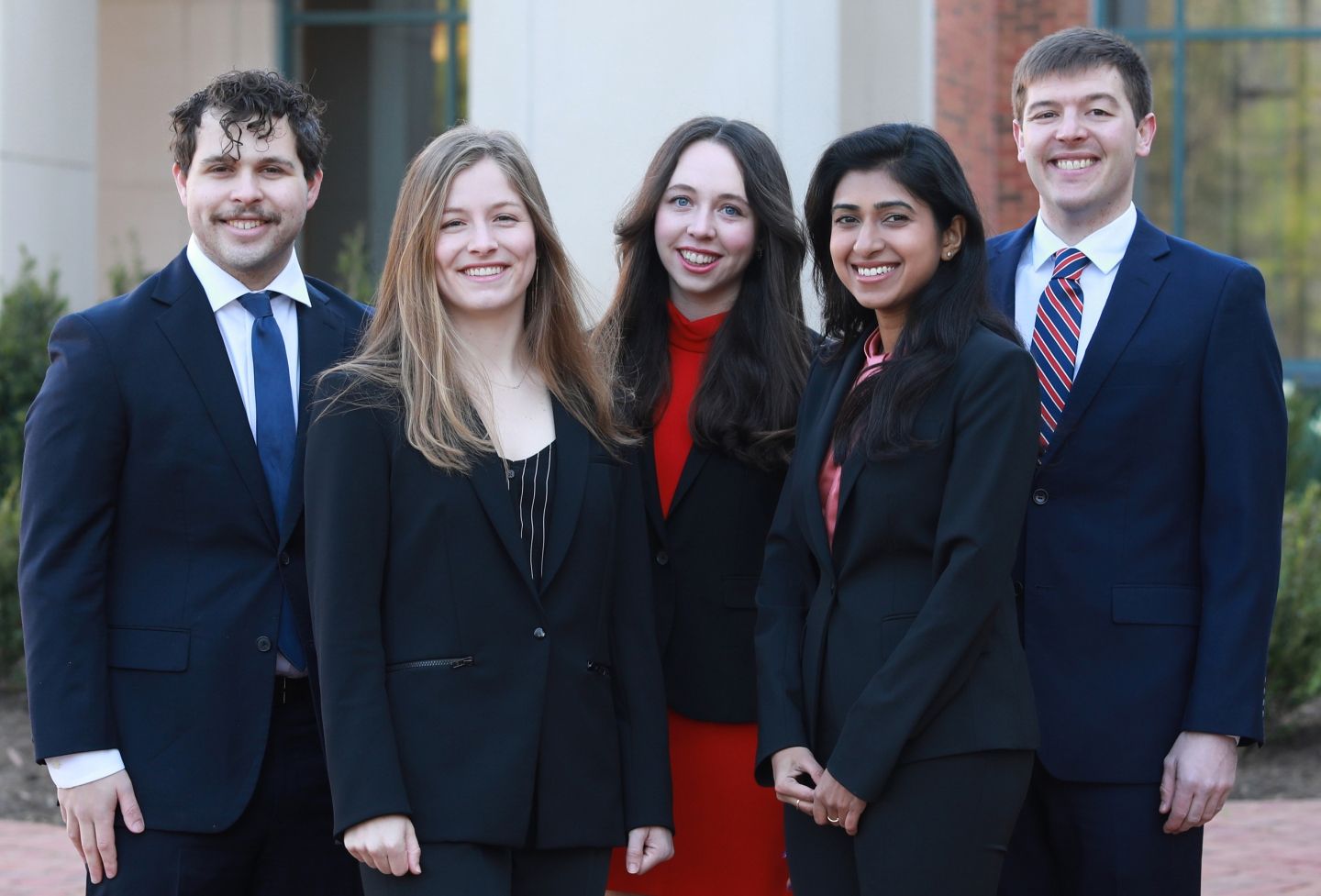Peter Vincent ’95 has spent his entire career, both inside and outside of the U.S. government, working on the thorniest national and international security issues. But his recent discussion on “60 Minutes” of the capture of El Chapo Guzman, the infamous Mexican drug kingpin, brought some attention that even Vincent, a former high-profile public servant, didn't anticipate.
“For an incredibly savvy, clever, almost a criminal genius that El Chapo Guzman was, he ultimately was done in by very simple tastes,” Vincent said on the program. The Mexican marines were eventually able to track him down in part because of a meeting he granted with the actress Kate del Castillo, and later, a large taco order to his compound before a party he was throwing. His downfall, in Vincent’s words? “Tacos, tequila and chicas.”
“Within 20 minutes of the show airing, some guy had put up sales of T-shirts with my quotation,” he said with a laugh. “We move in a fast-paced world. Unfortunately, I did not move fast enough to trademark that phrase.”
Vincent’s career and expertise put him in a unique position to discuss the El Chapo case, perhaps the highest-profile international crime story of the decade. From 2006 to 2009, Vincent served as the U.S. Department of Justice attaché at the U.S. embassy in Bogota, Colombia, where he coordinated the extraditions of about 500 Revolutionary Armed Forces of Colombia terrorists, drug kingpins, paramilitary leaders and general narcotraffickers.
Good practice, in other words, for helping to hunt down El Chapo for the Department of Homeland Security, where Vincent worked from 2009 to 2014 as both the principal legal advisor for U.S. Immigration and Customs Enforcement, and as the director of the ICE Office of International Affairs. Though Guzman was captured for the final time after Vincent’s government service had ended, Vincent was deeply involved in the decade-plus manhunt that ultimately led to his apprehension.
“It was no doubt a challenge, and there were certainly moments of frustration when we thought we were getting close, only to end up not capturing him,” Vincent said. “But I can tell you that all of the United States agencies involved were committed to taking this individual down, given the incredibly horrific crimes that the Sinaloa cartel was engaging in, and continues to engage in, still. At the same time, there was this almost global, certainly regional, sense of shared responsibility, which was incredibly important to the ultimate success of the Mexican Marines in capturing El Chapo after his most recent escape.”
Currently, Vincent is the general counsel for Thomson Reuters Special Services, which provides classified services to the U.S. government, principally the intelligence community, as well as the Department of Defense and law enforcement community. His work helps “in ways that help protect the homeland and our personnel and facilities overseas,” he said.
He also serves as the director for international policy at Borderpol, an organization focused on exchanging best practices and sharing information between border forces around the world about how to combat terrorism, international narcotrafficking, and transnational crime, while allowing for the free flow of people and goods.
Over the last two years, Borderpol has, with good reason, been focused on the large-scale migration crisis affecting continental Europe.
“We’ve stepped in, provided our expertise, leveraged our subject-matter experts, representatives of governments all over the world, to share experience and offer our humble suggestions as to how our friends in Europe might deal with this situation,” he said. “It’s not just a humanitarian crisis — we are seeing the greatest flow of displaced people since World War II — but also, in this day and age, there’s the potential for vulnerability vis-a-vis terrorists, war criminals and human rights violators, who may be mixed among these legitimate refugees and asylum seekers.”
Vincent said it was important that governments cooperate and coordinate in addressing the current migration crisis, rather than inflaming grievances through the use of divisive rhetoric that demonizes people who are fleeing from war or seeking asylum.
“It is those people in great positions of power and influence who should be encouraging all of us to engage in a very thorough and significant debate,” he said. “No doubt there are bad actors sprinkled among these folks that are looking to exploit the flows of irregular migrants into Europe and the United States, and we must remain ever vigilant to that. I spent my entire government career awake at night worrying about those bad actors and their ability to exploit the seams. But we in the United States in particular must always remember that the U.S. is a safe haven for individuals fleeing war and terrorism. We must, of course, keep our guard up, and we must vet these individuals, but we must never lose sense of their humanity, because when we do that we become less American, and that would be a tragedy.
“We must be careful to remain deeply vigilant, but we must also be careful not to overreact,” he said. “Being skeptical is healthy, but turning a cold shoulder is not a solution to the problem in either the United States or Europe.”
Vincent said he is extremely proud of the work he’s done in that regard, and especially of the difficult work that continues to be done by those in the public sector.
“I think that’s what motivates all of us, colleagues of mine who remain in public service, who are not making a lot of money, and putting their lives and the lives of their families in danger,” he said. “It’s their mission of doing right, not only by their country, but by their global community. It’s something that’s just completely admirable, and something that I dearly respect.”
Founded in 1819, the University of Virginia School of Law is the second-oldest continuously operating law school in the nation. Consistently ranked among the top law schools, Virginia is a world-renowned training ground for distinguished lawyers and public servants, instilling in them a commitment to leadership, integrity and community service.


